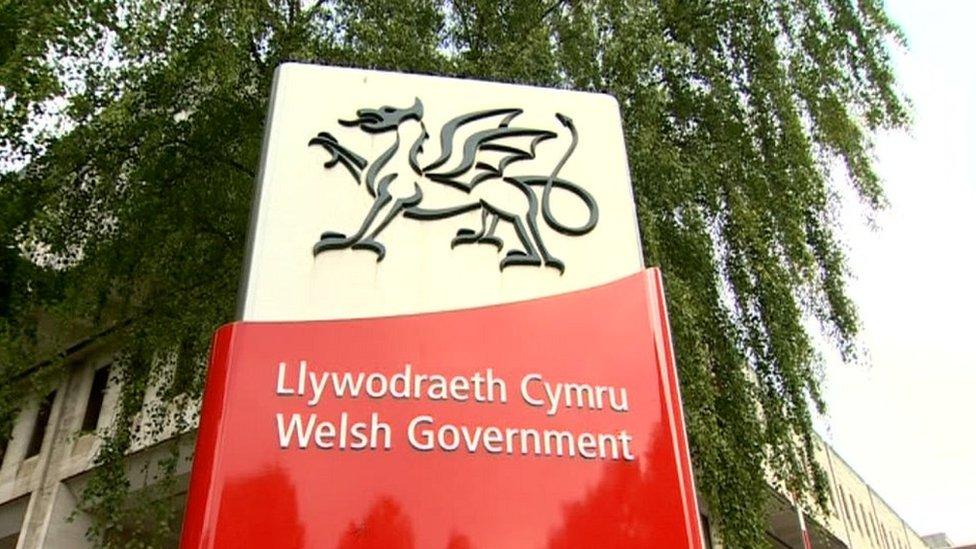Carwyn Jones triggers probe into government bullying claims
- Published
On Tuesday Carwyn Jones said there had been "issues" but "no specific accusation of bullying"
First Minister Carwyn Jones has referred himself to an independent inquiry into claims of bullying in the Welsh Government dating back to 2014.
He has decided to create an independent system to police the code for ministers, external, similar to Scotland's.
Ex-minister Leighton Andrews and former adviser Steve Jones alleged there was bullying and a "toxic" atmosphere in the previous Welsh Government.
The investigation will be private, but the findings will be made public.
The bullying claims emerged following the death of former Labour minister Carl Sargeant.
Mr Jones faces a vote in the Senedd next Wednesday on a separate bid by opposition parties to make him answer questions in front of a panel of AMs.
Welsh Government sources hope the new announcement will persuade AMs not to back that idea.
James Hamilton, currently the Independent Advisor to the Scottish Government, will handle the investigation into the bullying claims.
On Tuesday Mr Jones faced questions in the Senedd over an apparent discrepancy between an answer he gave in 2014 that no allegations of bullying had been made, and one last week that said issues at the time had been "dealt with".
He told AMs "no specific accusation of bullying" was ever "presented" to him.
But he said: "I do accept that this is an issue that will need further scrutiny."
Mark Reckless of the Conservative group wants to be sure of a "genuinely independent process"
Welcoming news of the inquiry on Thursday, Labour AM Lee Waters tweeted, external: "Right that Ministerial Code is policed by independent person, not by any FM. This will have support in all parties."
However Welsh Conservative leader Andrew RT Davies warned "this cannot be dragged out or swept under the carpet".
"While these are positive steps, it remains vital that assembly members will have an opportunity to scrutinise the first minister over these allegations," he said.
"We need firm assurances from the permanent secretary [the Welsh Government's top civil servant] over the transparency of the pending investigation and a clear timeline for when we can expect findings to be published."
Plaid Cymru AM Sian Gwenllian said Labour was a "bit rich" calling for an independent adviser now
Plaid Cymru called the first minister's announcement "long overdue".
A spokeswoman said: "We now need to see the details and have clarity on whether any referral is separate to previously announced independent inquiry.
"The people of Wales will want absolute transparency from this process, and the Welsh Government must ensure that it happens."

Analysis by Daniel Davies, BBC Wales political correspondent

This isn't just an investigation into bullying. It's an investigation into what Carwyn Jones said about bullying.
In 2014, he said there had been no complaints about bullying in his government.
Opponents want an answer to this question: did that statement mislead the assembly, thereby breaching the ministerial code?
That's what the investigation will look at.
The code is the set of rules ministers must follow.
For years, there have been complaints about the way the code is policed. Only the first minister can start an investigation and decide whether rules have been broken.
But what happens when it's the first minister under the spotlight, as he is now?
Today the code was updated in an attempt to resolve that problem.
A new section 1.4 says the first minister can turn to an independent adviser, including in cases where he faces allegations about his conduct. Similar rules already exist in the Scottish Government.
The adviser's findings will be published, but the code makes clear the first minister remains "the ultimate judge of the standards of behaviour expected of a minister and the appropriate consequences of a breach of those standards".
Breaching the code by misleading the assembly is very serious indeed.
Under the heading of "accountability", ministers are told to correct any inaccurate information they inadvertently give AMs.
So a statement in the Senedd that turns out to be wrong, should be corrected at the earliest possible opportunity.
But ministers who "knowingly mislead the assembly" - in other words, ministers who lie - are expected to resign.
- Published21 November 2017
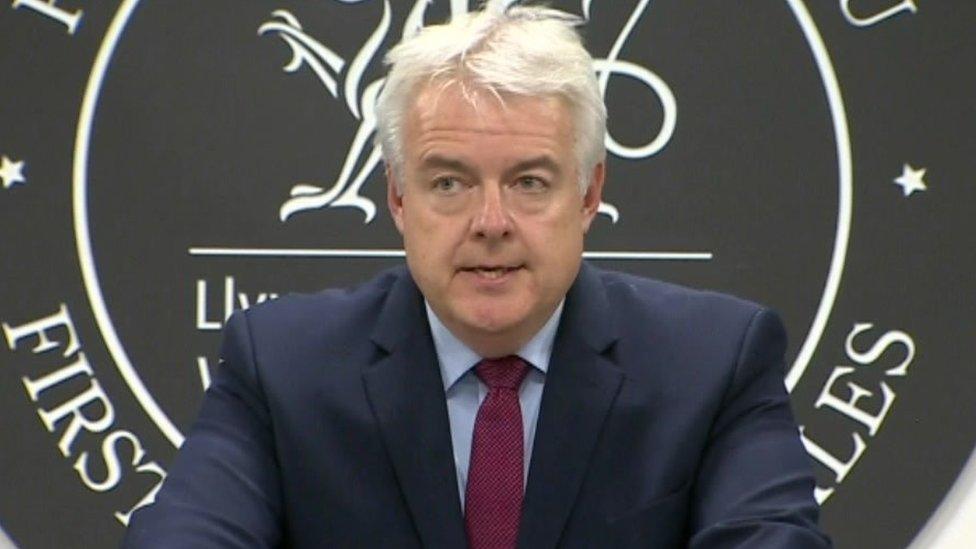
- Published23 November 2018
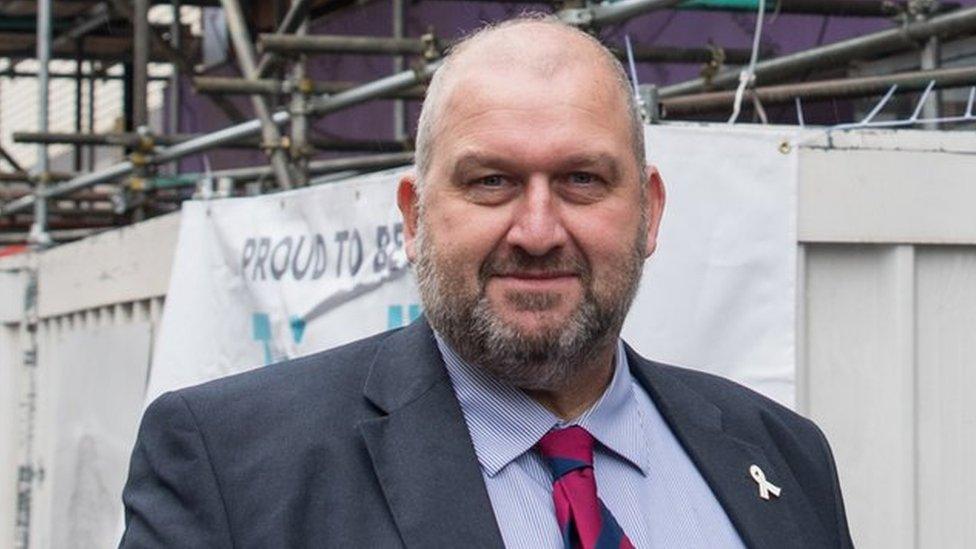
- Published16 November 2017
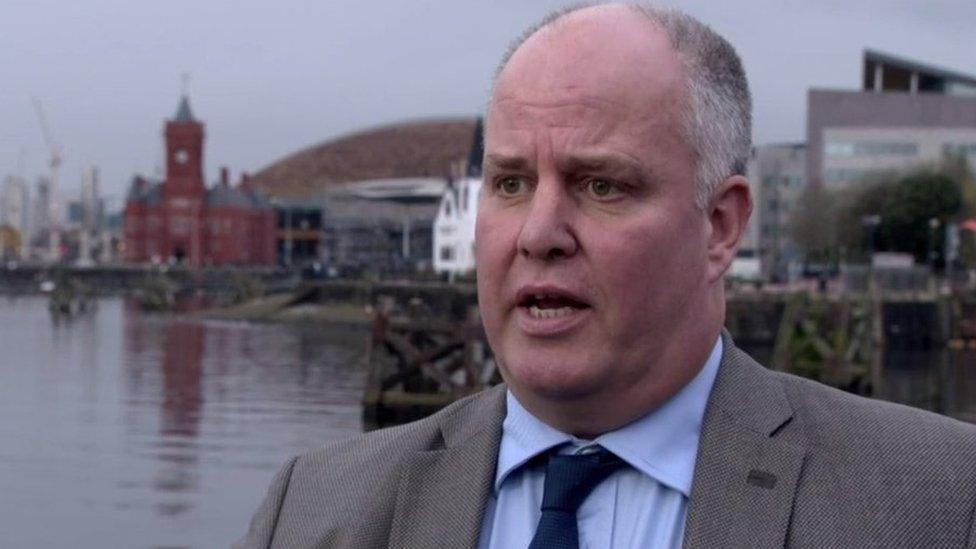
- Published15 November 2017
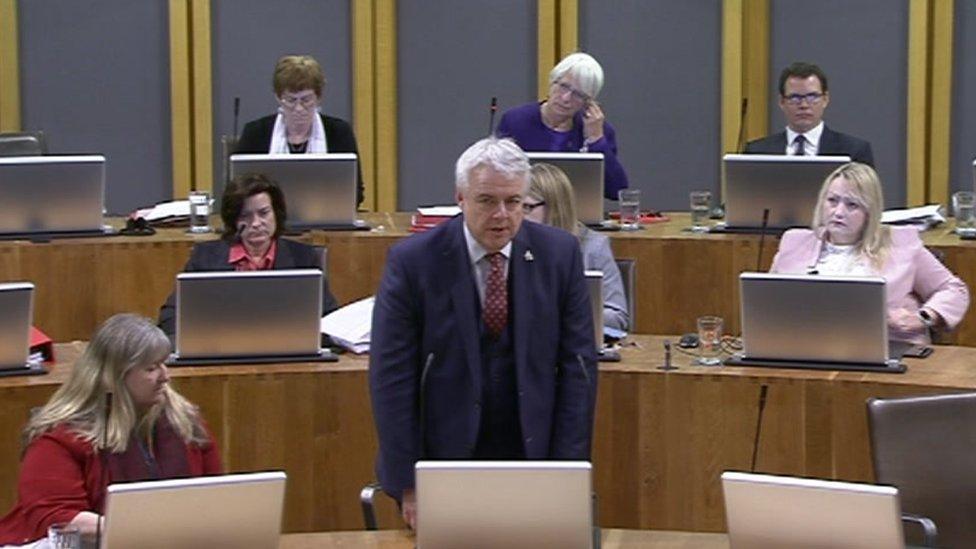
- Published14 November 2017
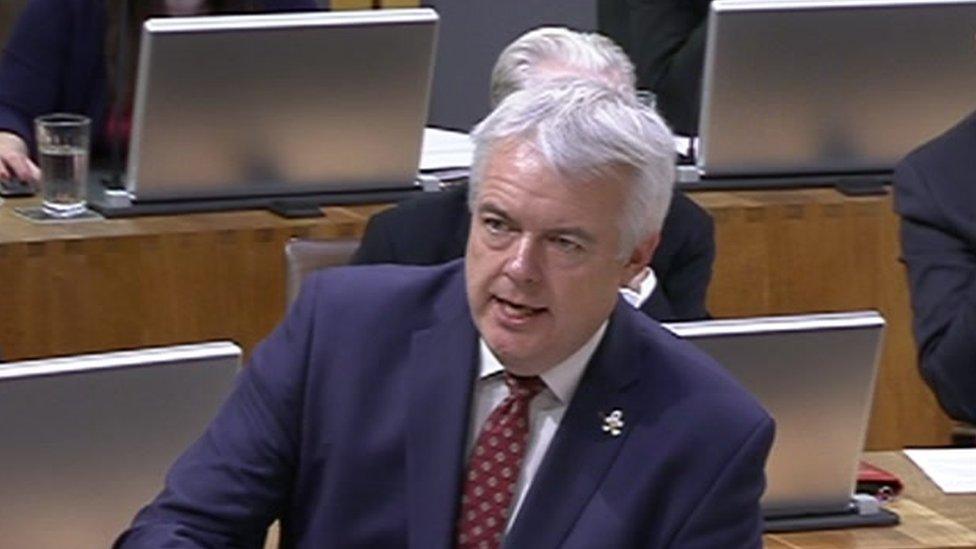
- Published14 November 2017

- Published13 November 2017
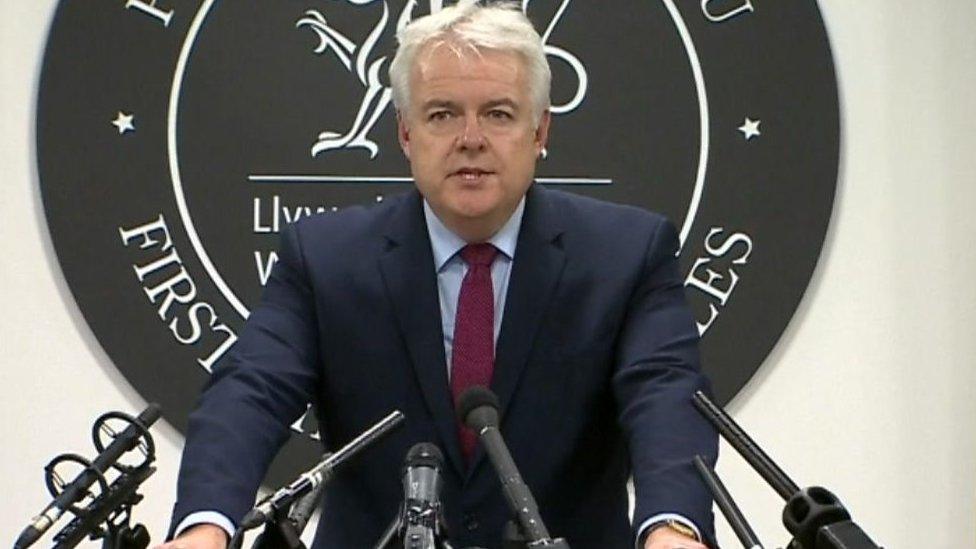
- Published12 November 2017
